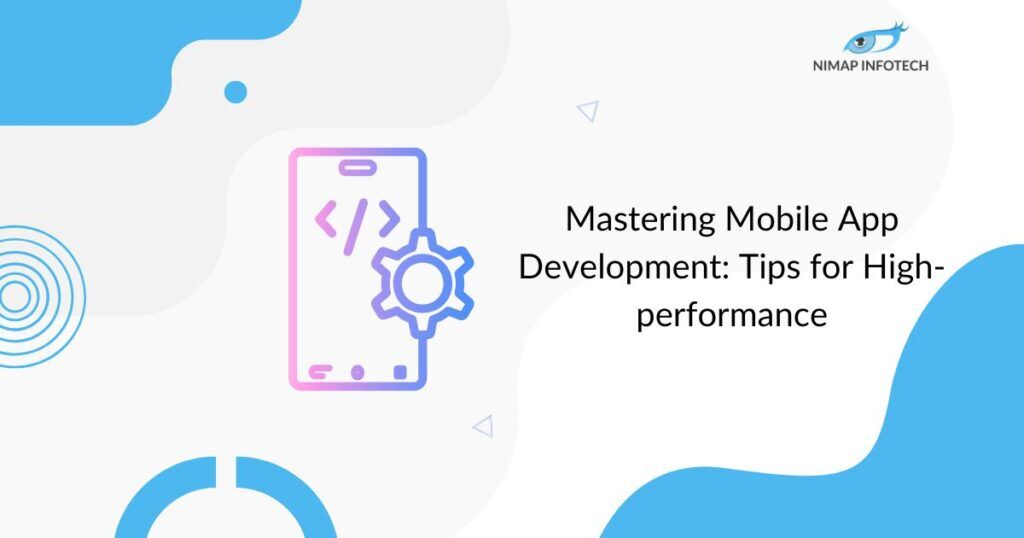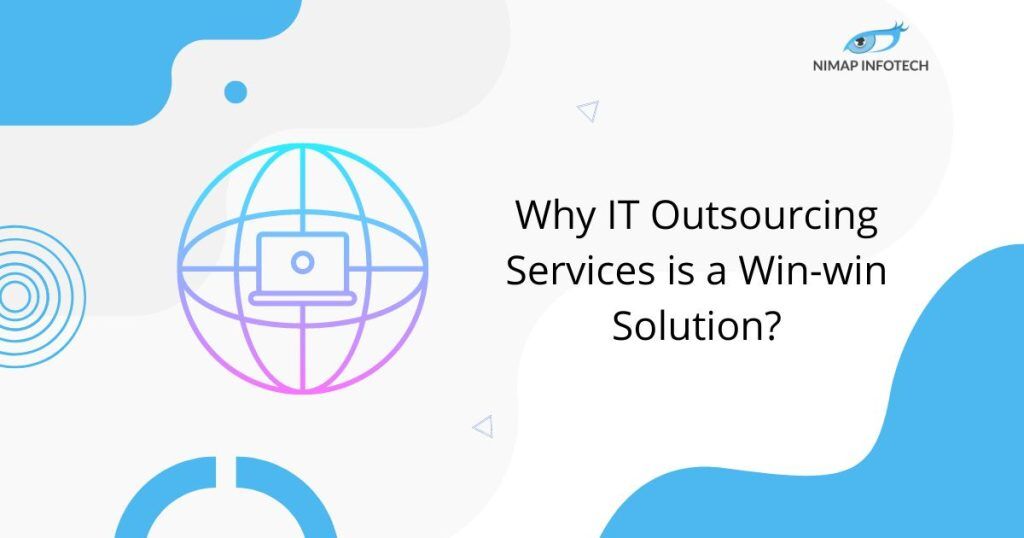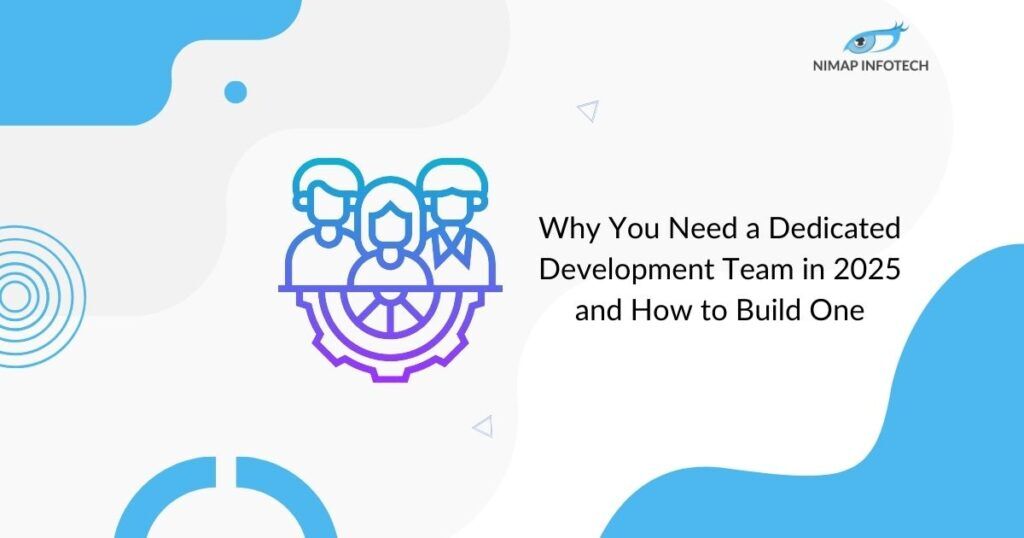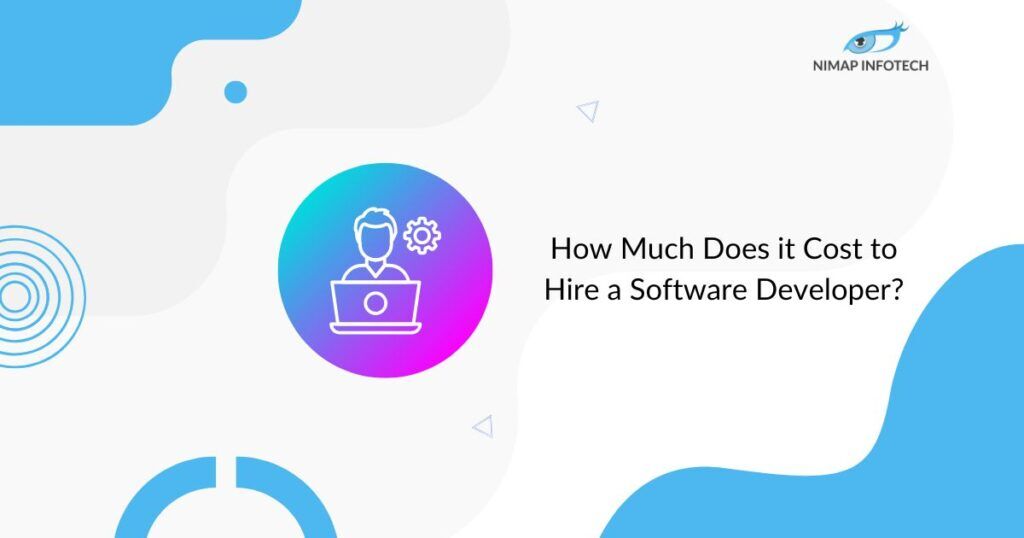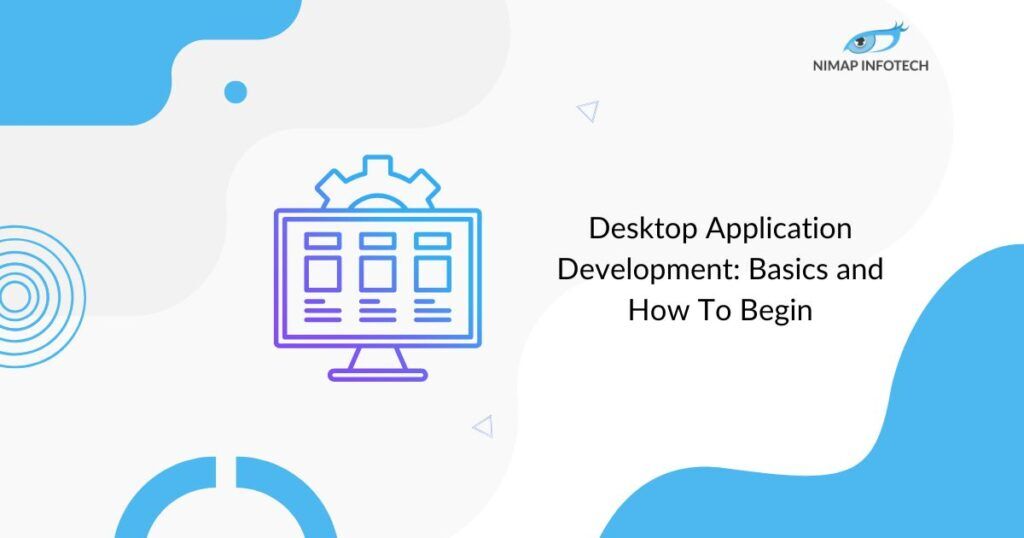Mobile app development has become an essential part of today’s digital world as the number of people using smartphones and tablets continues to rise. Because more and more businesses and individuals are using apps for a variety of reasons, developers need to concentrate on creating high-quality, user-friendly ones. In the rapidly evolving sector of mobile technology, where user expectations are increasing, the quality of mobile applications is critical.
Nowadays, flawless operation, seamless user experiences, and optimal performance are necessary for success. This requirement is met by Mobile Testing Training, which offers a comprehensive guide to evaluating the quality of mobile apps. But with the help of this comprehensive blog on mastering mobile app development, we have compiled enormous data to present you with a well-structured piece of writing that clarifies all your queries and concerns and helps you come up with the best solutions.
Table of Contents
ToggleWhat is Mobile App Development?
Mobile app development is the process of creating software applications specifically designed to run on mobile devices, such as smartphones and tablets. This process involves several stages, including planning, design, development, testing, and deployment. Mobile apps can be developed for various platforms, primarily iOS and Android, using different programming languages and frameworks. The goal of mobile app development is to deliver a user-friendly experience that meets the needs of users while providing functionality, performance, and aesthetic appeal.
Types of Mobile Apps –
There are many different types of mobile apps, but their development starts in one of three categories: native, web, or hybrid. Additionally, choosing the best app category is difficult because each has unique advantages and disadvantages. This is because different applications require distinct features. Among these features is the expanding potential for in-app advertising, which allows third parties to promote goods and services to users of various kinds of mobile apps. Apps are becoming effective marketing tools that allow advertisers to reach consumers. However, developers must comprehend the intricacies of each form of mobile application and its subcategories to achieve high app engagement levels, strong ROIs, and good user acquisition rates.
Which Kinds of Mobile Applications Are There?
App development is driven by three categories of mobile apps: hybrid, online, and native. These categories overlap in several areas, even though each one has a unique structure and approach to coding. This section will examine each category in detail, compare them, and highlight the benefits and drawbacks of the various kinds of mobile apps.
Native apps
Native applications are made especially for the operating system (OS) of a mobile device. As a result, in addition to all the other platforms and devices, you can have native iOS or Android mobile apps. You cannot use an iOS app on a Windows phone or a Blackberry app on an Android phone since they are designed for a single platform.
Technology Used:
- Native apps are created using a range of programming languages, including Java, Kotlin, Python, Swift, Objective-C, C++, and React.
Web Apps
Although web apps are accessed through a mobile device’s web browser, they function similarly to native apps. In the sense that you must download and install code into your device, they are not stand-alone apps. In reality, these websites are responsive, meaning that they change their user interface according to the device the user is using. Most web apps that provide the choice to “install” just bookmark the URL of the website on your device. Progressive web apps (PWAs), which are essentially native apps that operate within a browser, are one type of web application.
Technology Used:
- HTML5, CSS, JavaScript, Ruby, and other web-related programming languages are utilized to create web applications.
Hybrid Apps
Then some apps are hybrid. These are online applications that have a native-like appearance and feel. They are web apps designed to look native, even though they may have a home screen app icon, responsive design, quick speed, and even offline functionality.
Technology Used:
- Web technologies and native APIs are both used in hybrid applications. Ionic, Objective C, Swift, HTML5, and other technologies are used in their development.
Which One to Choose – a Mobile App or a Web App?
| Criteria | Mobile Apps | Web apps |
| Platform Dependency | Platform-specific (iOS, Android, etc.) | Platform-independent, accessible via browser |
| Installation | Requires download and installation from app stores | No installation is required, accessible via URL |
| Performance | Generally faster, can leverage device hardware | Slower compared to mobile apps, depending on internet speed |
| User Experience (UX) | Optimized for specific platforms, offers better UI & UX | Consistent UI across devices, less optimized UX |
| Offline Access | Can work offline (depending on design) | Requires an internet connection to function |
| Development Cost | Higher (needs separate apps for iOS, Android, etc.) | Lower (one app for all browsers) |
Steps to Consider While Developing a Mobile App –
To develop high-performance apps in less time, you need a combination of effective development strategies, the right tools, and streamlined processes. Here’s how you can achieve this:
Use Cross-platform Development Tools:
- React Native, Flutter, and Xamarin allow developers to write code once and deploy it on both iOS and Android, reducing development time while ensuring high performance. These frameworks have native components that provide near-native performance.
Agile Development Process:
- Implementing Agile or Scrum methodologies enables faster iteration, continuous feedback, and quicker development cycles. Break down the project into sprints, each focusing on delivering a functional part of the app.
Prioritize MVP (Minimum Viable Product):
- Focus on developing an MVP first to launch the app faster. This will help you validate the core features and performance while gathering user feedback early on. Add more features and optimizations after the MVP release.
Optimize for Performance Early:
- Code optimization (minification, lazy loading) and efficient use of resources should be addressed from the start. Profiling and Testing tools (e.g., XCode Instruments, Android Profiler) can be used during development to identify and fix performance bottlenecks early. Keep the app lightweight by optimizing assets like images, videos, and animations.
Automated Testing:
- Use Continuous Integration (CI) and automated testing frameworks (e.g., Jenkins, Appium, Selenium) to ensure faster development with fewer bugs. Automation testing help maintain quality while speeding up development by quickly identifying errors after every code update.
Use Templates & UI Kits:
- Pre-designed UI kits and app templates can save time in UI/UX development while maintaining a professional appearance. They can be customized for unique needs while offering a fast start.
Team Collaboration Tools:
- Streamlining collaboration improves team productivity and helps developers solve issues faster. Version control systems like Git help ensure smooth collaboration among developers.
DevOps & Continuous Delivery (CD):
- Implement DevOps practices and automate deployment processes using tools like Jenkins, CircleCI, or GitLab. This ensures that the code can be tested, built, and deployed quickly. CD pipelines help in rolling out updates without manual intervention, ensuring that new features and fixes reach users faster.
Conclusion:
- By leveraging cross-platform tools, cloud services, reusable components, and agile methodologies, you can significantly reduce development time while still building high-performance apps.
Mobile App Development Tips and Tricks for Startups –
Here are some tips and tricks for app development for startups to boost business growth. About 2.0% of the more than 8.0 million mobile apps available in app stores today are successful, meaning the remaining 98.0% are either doing something incorrectly or improperly. Let’s now examine one of the best-performing apps available on the app stores. Thus, here are some pointers for developing mobile apps that SMEs and startups should adhere to to succeed:
Built Apps Based on Customer’s Sentiments:
Building a mobile app requires more than just time and effort—it must engage and motivate users. If your app doesn’t offer value, especially in monetary terms, people won’t use it. Monitoring feedback on Google Play or the App Store is essential to understand user preferences. Gathering feedback early in development is crucial. Speak to real users and test your app idea to ensure it meets their needs before heavily investing in development. When building for multiple platforms, conduct user research. Usage varies between mobile web and app users, so create customer personas specific to each platform and device to optimize user experience.
Invest in Perfect Features and Platforms:
Once you understand your users’ preferences, it’s crucial to select the right features and platforms for your app. The appearance and functionality vary across platforms, so studying each one is essential. Along with a user-friendly interface, integrating technical features like the best SMS gateway for messaging apps enhances the experience. Apps must be simple yet functional; otherwise, users will uninstall them. Extra features like social media integration and push notifications can improve user engagement and boost revenue potential.
Create an Offline Presence and Establish a Relationship With Your Customers:
A growing trend in mobile app development is ensuring apps work offline. With more users relying on smartphones for entertainment, news, and local information, apps must provide a great experience even without internet access. Including local information and geolocation features allows users to find nearby places and services offline, which enhances usability in remote areas without coverage. This offline functionality is becoming a key factor in app success.
Make Simple but Effective Apps:
Smartphones are widely used by all ages, making their audience large. Similarly, your app should be simple to attract more users and encourage repeat visits. For start-ups or new businesses, avoid overcomplicating your app. Instead of aiming for complex features, focus on creating a straightforward, user-friendly app that will engage users effectively.
Banners and Posts Are Your Best Friend:
To ensure a successful custom mobile app, avoid overusing ads and banners, as they can frustrate users and lead to uninstalls. Limit ads to one or two per page and place them in corners to avoid disrupting navigation. Choose ad networks like AdMob, Mobclix, or AdSense carefully, understanding how they work. The goal is to balance ad visibility and user experience, ensuring ads don’t clutter the screen.
Is SEO Your Ultimate Rank Changer:
To stand out in a crowded app market, you need more than just a functional app—SEO and App Store Optimization (ASO) are key. These techniques improve your app’s visibility, even with a small marketing budget. A well-written app description, crafted by professionals, is essential to persuade users to choose your app over others. SEO helps by optimizing keywords to rank higher in app store searches. Using keyword research tools also helps you discover what users are searching for. Partnering with a top mobile app development company can ensure you create a successful app quickly, boosting business growth for startups.
Where There is Marketing, It Ultimately Creates Space for Unprecedented Growth:
Mobile marketing is on the rise, making it crucial for businesses to launch their apps before peak seasons and develop effective marketing strategies. By utilizing search optimization, companies can enhance their visibility. Smartphones and tablets facilitate direct communication with consumers, making mobile marketing a priority for businesses of all sizes. Apps are especially effective for closing sales, as users are three times more likely to make purchases on mobile devices compared to desktops or laptops. Additionally, mobile devices serve as powerful data collection tools, providing insights into customer behavior that can drive sales growth.
A multi-functional app is never as successful. If you concentrate on resolving a single issue, your app will be successful. Examine the apps of your rivals, extract their greatest features, and improve them. To get people to use your app, make sure it has a unique selling proposition. However, avoid making things too complex for customers to comprehend. Don’t complicate things! A simple app makes better design sense, and simplicity also prevents your app from being complex or full of bugs, which means users are likely to stay longer.
These are some of the most important tips and tricks for a successful mobile app. Want your startup business to stay ahead in the competitive market? Hire mobile app developers; this will help you get innovative and unique mobile app development solutions that will ultimately help you.
How to Choose the Best Mobile App Development Company and Why Nimap Infotech for Mobile App Development?
When choosing the best mobile app development company, several critical factors should be considered, and Nimap Infotech exemplifies many of these qualities.
- First and foremost, it’s essential to assess the company’s experience and expertise in mobile app development across various platforms. Nimap Infotech boasts a seasoned team of developers with extensive knowledge of the latest technologies and industry trends, ensuring that your app is built using cutting-edge tools.
- Another important criterion is the company’s portfolio and case studies. Nimap Infotech showcases a diverse range of successful projects that highlight its capability to deliver high-quality applications tailored to different industries. This proven track record builds confidence in their ability to meet your specific needs.
- Furthermore, effective communication and collaboration are crucial in the development process, and Nimap Infotech prides itself on maintaining transparent and consistent communication with clients throughout the project lifecycle, ensuring that feedback is incorporated seamlessly.
- Additionally, consider the company’s approach to user experience (UX) and user interface (UI) design. Nimap Infotech emphasizes creating intuitive and engaging apps that prioritize user satisfaction, leading to higher retention rates and positive reviews.
- Finally, ongoing support and maintenance are vital for any mobile app’s long-term success. Nimap Infotech offers comprehensive post-launch support to help clients address any issues and implement updates as needed, ensuring that your app remains relevant and functional. By choosing Nimap Infotech, you’re not just selecting a development partner; you’re investing in a collaborative relationship that prioritizes your vision and goals.
Also Read: How Mobile Apps Will Impact the Workplace in 2024 and Beyond?
Author
-

With 14+ years in IT and entrepreneurship, I co-founded Nimap Infotech, a digital transformation company that has delivered 1200+ projects and built a team of 400+ engineers. I’ve also led mobile development teams at Accenture India and IBM Apple Garage and developed a network of 7k+ iOS and Android developers. As an Angel Investor, tech advisor, and mentor, I actively engage with the startup ecosystem.
View all posts

